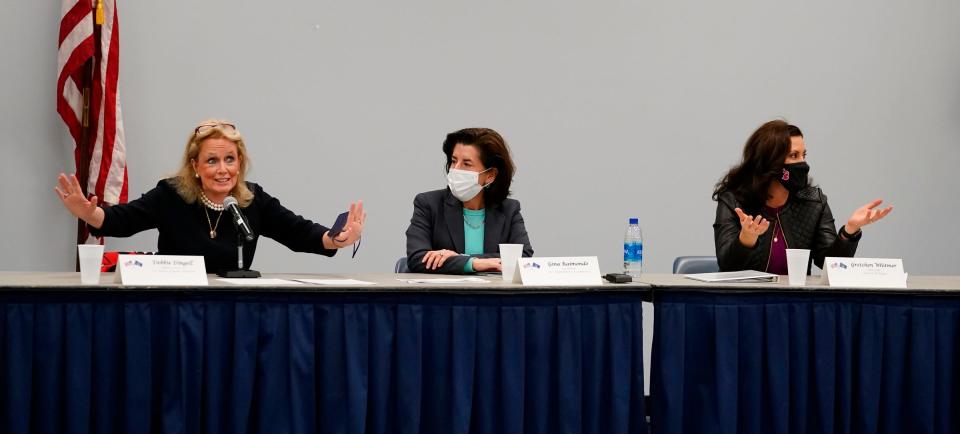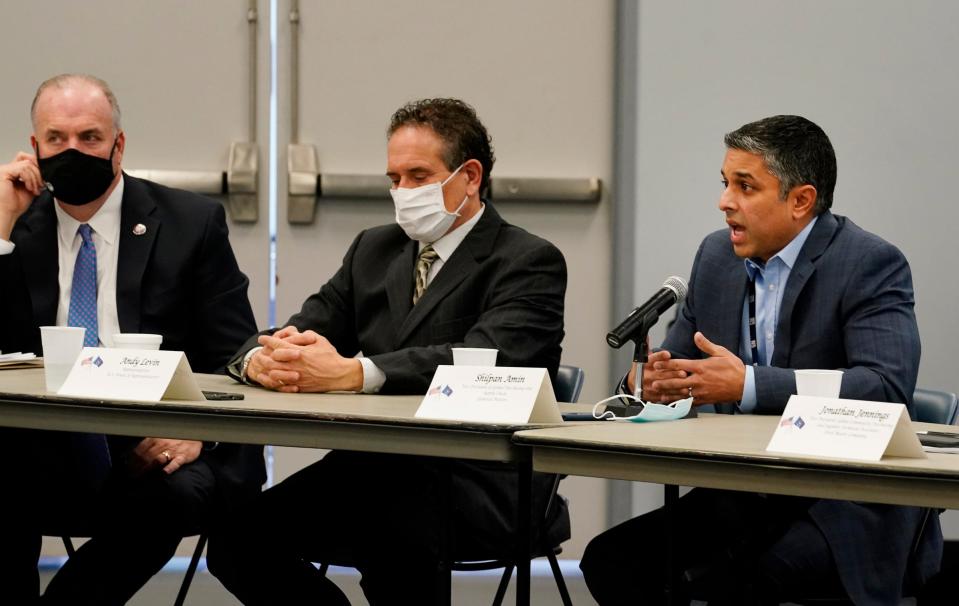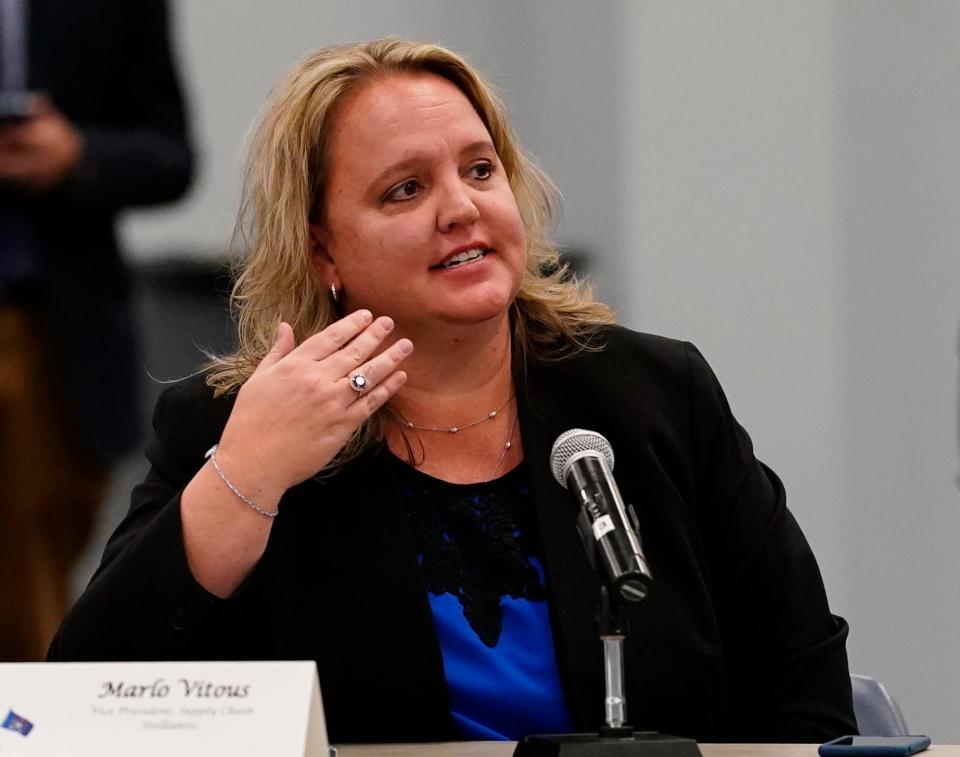Commerce secretary at auto roundtable: Chip shortage has US in 'very vulnerable spot'

Democratic politicians, labor leaders and automaker representatives gathered at a UAW hall in Taylor on Monday to raise the alarm about the danger that the global semiconductor shortage poses to manufacturing in the United States and how it threatens auto industry jobs in Michigan in particular.
The roundtable, which included both U.S. senators from Michigan, various U.S. House representatives, Michigan Gov. Gretchen Whitmer and U.S. Commerce Secretary Gina Raimondo, also sought to highlight efforts in Congress to push more than $50 billion included in bills in both houses to support domestic chip production, with a hope to secure passage before the end of this year.
Raimondo said the legislation would be used to incentivize companies for production and boost training, and it should fund more than six production facilities, with various officials at the event suggesting Michigan as a good location. Still, it will take more than a year at a minimum to see any production benefits from the legislation, she said.
It's critical to move forward, however, she said.
“We’re in a very vulnerable spot,” Raimondo said. “Chips are the building blocks of our entire modern economy.”
More: Commerce secretary, in town to talk chips, shares story about dad losing job to China
Chip production largely fled U.S. shores for cheaper labor, according to Raimondo. Whereas decades ago the U.S. produced almost 40% of the world's supply of chips, now it produces about 12%, according to Raimondo.
She said that’s concerning, but she’s more worried about the fact that the number is zero when talking about the most sophisticated chips.
Raimondo noted President Joe Biden’s goal of having 50% of the vehicles on the roads be electric by 2030. That goal and the jobs envisioned as part of the push would be jeopardized by a continued lack of chips, which has already hit production of even the most profitable vehicles made by General Motors, Ford and Stellantis.

Shilpan Amin, vice president of global purchasing and supply chain for General Motors, said the auto industry’s need for more chips will only increase. The current rapid pace of change is a major factor, he said.
“Our ability to keep up with that pace of change relies on a resilient supply chain. It relies on a supply chain that can deliver products on time as we see that pace of change, and when people ask us about when this will end, no one really knows. It’s because the transparency isn’t there,” he said. “You’ll see the auto industry will double our needs for semiconductors in the next five years.”
And automakers are struggling to manage the current situation.
Marlo Vitous, vice president of supply chain for Stellantis, said that means daily, nightly and weekend calls for those managing the chip shortage at the companies. She described it as a 24/7 endeavor.

More: GM partners with suppliers to find a chips fix in North America
More: Stellantis, citing chip shortage, plans layoffs for 400 workers at Jeep Cherokee plant
More: Car prices could go up again as auto industry eyes shortage of magnesium
“We look at things both short term and both long term,” she said. “Short term it is grit. It is pure grit right now to fight for the parts that we need and for our employees.”
A consistent echo from those at the roundtable was the need to make the United States less reliant on a global supply chain for such key components. Chips are needed for the manufacture of everything from vehicles to video games
U.S. Rep. Debbie Dingell, D-Dearborn, was among those who called for bringing the supply chain back to the United States.
Sen. Gary Peters, D-Michigan, noted that “we do not build our warships in China, we build our warships in the United States of America.”
Chips need to be treated the same way, he said.
Contact Eric D. Lawrence: elawrence@freepress.com. Follow him on Twitter: @_ericdlawrence. Become a subscriber.
This article originally appeared on Detroit Free Press: GM, Ford, Stellantis reps among those at roundtable on chip shortage
